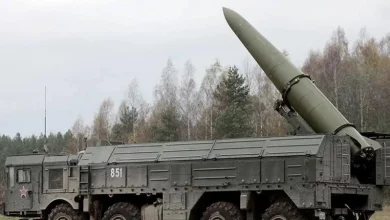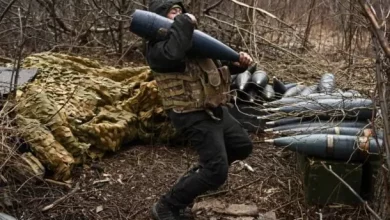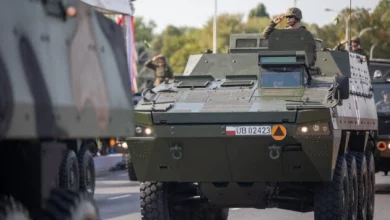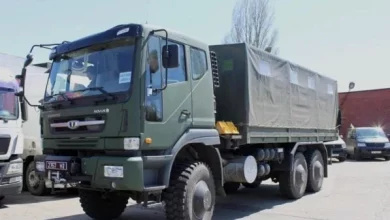Analysis: Things get ugly if Russia pulls the nuclear trigger in Ukraine
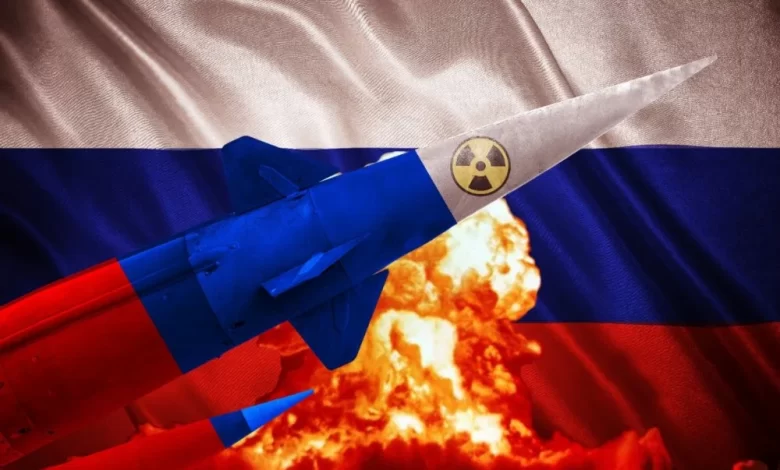
Not long ago, one of my students asked: “So, if my phone tells me the Russians have used nuclear weapons in Ukraine, should I do anything different here?” In other words: should I head for the hills?
My answer is “no.” The U.S. and Russian governments know full well that lobbing nuclear weapons at each other would be suicidal—each has enough powerful, survivable nuclear weapons to obliterate the other as a functioning society. No one is going to march down that road on purpose.
But it’s a nervous “no,” because the key lesson of the crises of the last several decades is that there is a fog of crisis, just as there is a fog of war, and things can happen that no leader originally intended. And in this case, thinking about how the United States might respond to Russian nuclear use makes clear just how rapidly things could get very dicey.
The danger that Russia might turn to nuclear weapons is real. So far, Russian president Vladimir Putin hasfound it in his interest to talk a big game about possibly using nuclear weapons—while instructing his government to deny that any of his nuclear threats ever happened—but not to actually do very much. Russia’s nuclear weapons have not been placed on high alert, and the short-range “tactical” nuclear weapons most likely to be used in Ukraine have not been moved from their central storage facilities. But Putin can’t afford to lose this war, having spent tens of thousands of Russian lives on it, and he now has few realistic options to win. Putin knows there would be huge costs and risks from crossing the nuclear threshold, but if the choice was between that and a humiliating defeat that might cause him to lose power, he might well reach for the nuclear button.
Using nuclear weapons would be unlikely to result in major gains on the battlefield. The Ukrainians haven’t been concentrating forces in ways that make them vulnerable to nuclear blasts, and most targets that could be destroyed with nuclear weapons could be destroyed with Russia’s conventional missiles and drones.
But Putin might believe that a nuclear attack could force the Ukrainians to capitulate. He might, for example, use a handful of nuclear weapons on the battlefield and then say: “Unless you agree to Russia’s terms, Kharkiv is next, and then Odessa, and then…” Putin has referred to the “precedent” the United States set in dropping nuclear weapons on Hiroshima and Nagasaki and then demanding Japan surrender.
President Joe Biden’s national security advisor, Jake Sullivan, has publicly warned that if Russia were to use nuclear weapons, the response would be “catastrophic” for Russia, and has offered Russia more specifics in private. The difficulty is coming up with a response severe enough to match the outrage of the use of nuclear weapons but not so severe as to create massive escalation risks with a state ruled by a leader desperate enough to launch a nuclear strike despite the warnings.
As Sullivan’s blunt warning makes clear, the Biden administration is considering responses that include not just political condemnation and additional sanctions but also military action. Most U.S. analysts and officials are not talking about using nuclear weapons in response, but rather conventional strikes—perhaps not on the Russian homeland given the risks of nuclear retaliation that might entail, but on Russian forces in Ukraine and elsewhere.
For better or for worse, that would make the United States a direct belligerent in the war. That is exactly what Biden has been trying to avoid, fearing, as he puts it, that direct U.S.-Russian fighting would lead to “World War III.” Russia would almost certainly strike back in some way, in part to deter the United States from going any further. That, then, would call into play Article V of the NATO treaty, under which an attack on one is an attack on all. From there, things could get very ugly, very fast. There can be little confidence that every action by every military unit could be carefully controlled, and every intended signal understood.
As one example, if U.S. strikes really were “catastrophic” for Russia, Russian forces in Ukraine would be greatly weakened. Ukrainian forces would have a dramatic new opportunity to surge forward. Russia’s diminished forces might not be able to stop them, which might then lead Putin to reach for the nuclear button again.
The longer the war continues, the more people will die and the more the nuclear danger will rise. It is time to work with Ukraine to begin exploring a negotiated end to the conflict. That’s not likely to happen soon, though, as both sides are optimistic that they might end up in a stronger position after more fighting. To reduce the risk of catastrophic escalation, the Biden team needs to continue using tabletop exercises to game out different scenarios, going several steps in to consider all the dangers and implications. And the Biden administration must continue exploring how it could reassure a paranoid Putin, even in such an awful situation, that the United States will not escalate further if Russia does not and won’t take action to destroy Russia or oust Putin from power.
Any use of nuclear weapons would pose devastating dangers. The United States and its allies need to find ways to reduce the danger, and they need to think several steps ahead in considering how they would respond to Russian nuclear use and what they should say to Russia now to convince it not to consider going down the nuclear road. Biden should continue to do everything he can to make sure the seventy-seven-year-old nuclear taboo continues.


